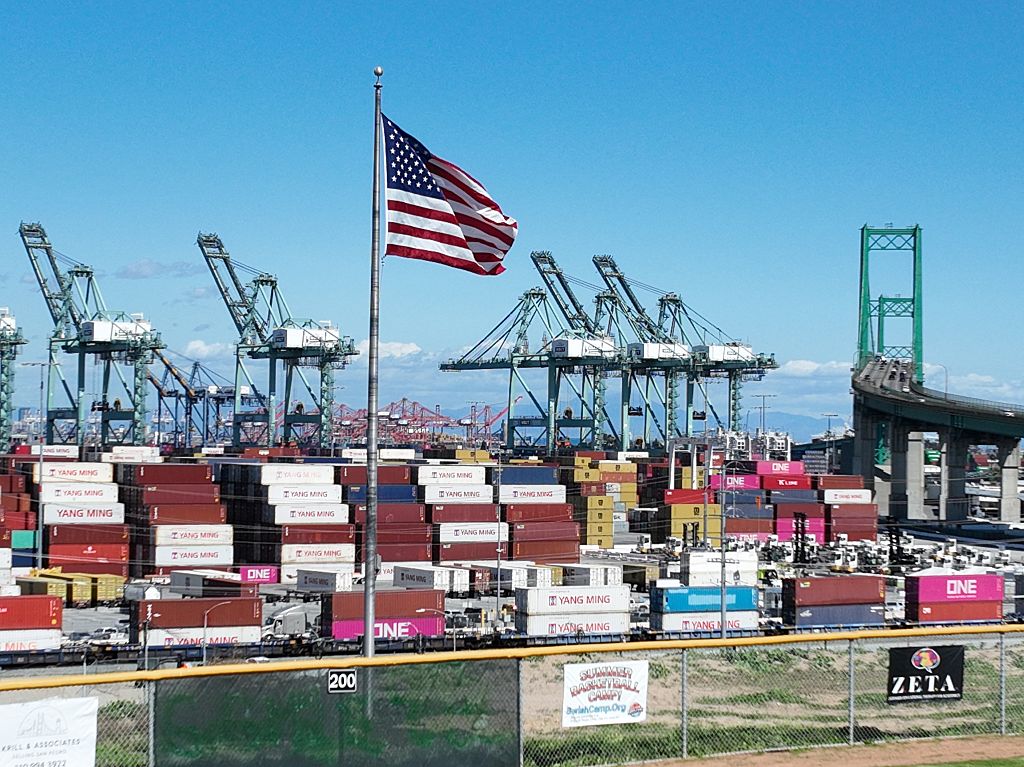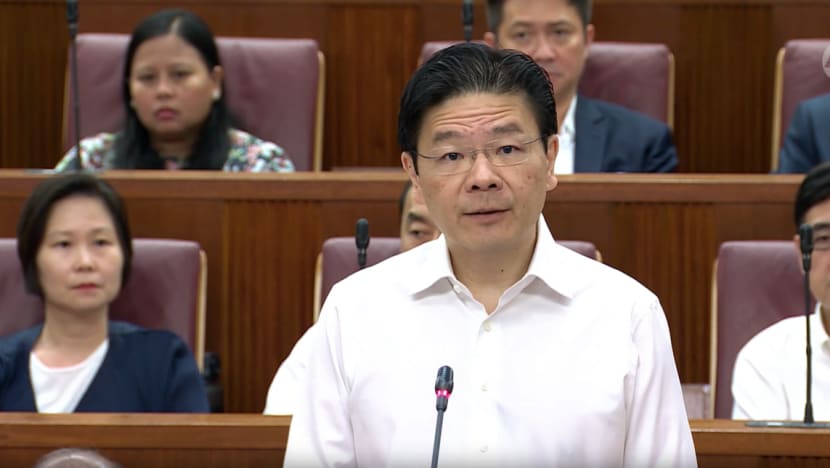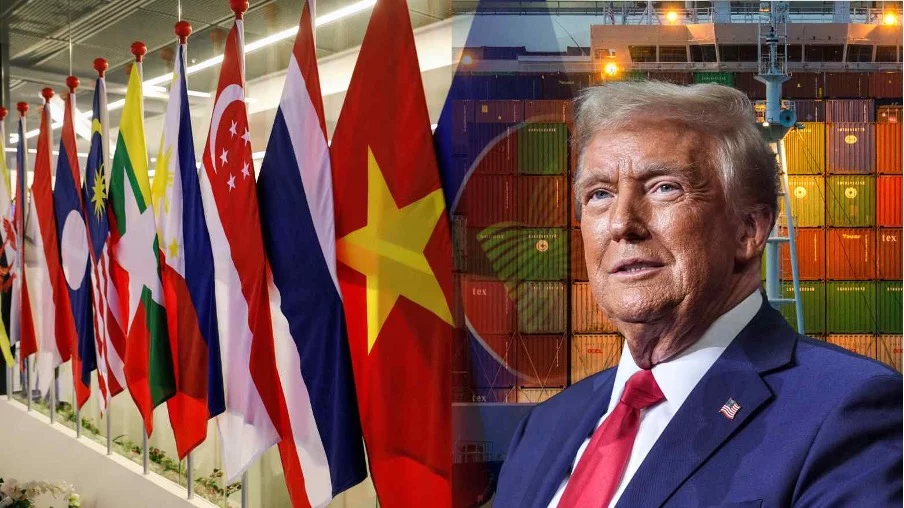"A Seismic Change": Singapore Government Reacts to US Tariffs with Task Force Formation
Singapore's government has reacted strongly to the U.S. tariffs imposed by President Donald Trump, characterising them as a fundamental shift in global trade that threatens Singapore's open economy and potentially signals the end of rules-based globalisation.
Prime Minister Wong: "The Era of Rules-Based Globalisation is Over"
In a ministerial statement to Parliament on April 8, Prime Minister Lawrence Wong delivered a sobering assessment of the tariffs' implications, warning that they mark "a seismic change in the global order."
"The era of rules-based globalisation and free trade is over. We are entering a new phase – one that is more arbitrary, protectionist, and dangerous," PM Wong declared in a video message released earlier on April 4, setting the tone for Singapore's official response. Prime Minister's Office
The Prime Minister didn't mince words about the potential economic impact, stating: "Singapore may or may not go into recession this year. But I have no doubt that our growth will be significantly impacted." He added that the Ministry of Trade and Industry, which had originally projected GDP growth of 1% to 3% for 2025, is reassessing and "will likely revise it downwards." The Straits Times

Task Force Formation: A Coordinated Response
The government announced the formation of a national task force chaired by Deputy Prime Minister and Trade Minister Gan Kim Yong to help businesses and workers navigate the uncertainties created by the tariffs.
"These tariffs will hurt the Singapore economy, businesses and workers," PM Wong emphasised, explaining that the task force will include representatives from Singapore's economic agencies, the Singapore Business Federation, the Singapore National Employers Federation, and the National Trades Union Congress. Channel News Asia
DPM Gan elaborated that the task force will focus on engagement, information sharing, and transparency: "When we know something important, we'll share with the population, with the businesses, with the workers, with the unions and with members. And when we don't know yet, we'll tell you honestly we do not have the information yet." The Straits Times

"These Are Not Actions One Does to a Friend"
Singapore officials expressed particular disappointment that despite the U.S.-Singapore Free Trade Agreement and Singapore's trade deficit with the U.S., the country is still subject to the 10% baseline tariff.
"We are very disappointed by the US' move, especially considering the deep and longstanding friendship between our two countries. These are not actions one does to a friend," PM Wong stated pointedly, highlighting that Singapore imposes zero tariffs on U.S. imports and actually runs a trade deficit with the U.S. Channel News Asia
DPM Gan echoed this sentiment in an earlier doorstop interview: "We are naturally disappointed, that despite our strong and long-standing economic and commercial relationship with the US under the US-Singapore Free Trade Agreement (FTA), we are also subject to the same 10% baseline tariff. The US exports to Singapore enjoy zero tariffs for more than two decades. They have also enjoyed a significant, substantial trade surplus with Singapore, amounting to US$30 billion." Ministry of Trade and Industry

No Retaliatory Measures, But Concerns About Global Trade War
Despite having recourse under the FTA to take counter-measures, Singapore has decided not to impose retaliatory tariffs.
"Imposing retaliatory import duties will just add costs to our imports from the US, and this will affect our consumers and businesses," DPM Gan explained, adding that Singapore will instead engage with U.S. counterparts to better understand their concerns. Ministry of Trade and Industry
PM Wong warned, however, that other countries may not exercise the same restraint: "The likelihood of a full-blown global trade war is growing." He noted that China has already announced countermeasures, and the European Union is evaluating its response. Channel News Asia
The Larger Threat: Rejection of the World Trade System
The government's strongest criticism was directed at what it sees as the U.S. abandonment of the multilateral trading system it helped create.
"What the US is doing now is not reform. It is abandoning the entire system it had created," PM Wong stated. "Its new approach of reciprocal tariffs, country by country, is a complete rejection of the WTO framework." Prime Minister's Office
He warned that if other countries adopt the same approach, abandoning the World Trade Organisation and trading only on their own preferred terms, "it will spell trouble for all nations, especially small ones like Singapore."

Economic Impact: Beyond the 10% Tariff
While Singapore faces the lowest base tier tariff of 10% compared to countries like China (54%), Vietnam (46%), or the European Union (20%), officials stressed that the indirect effects could be profound.
DPM Gan explained the ripple effects: "Once you have duties imposed on other countries' exports to the US, these countries may begin to slow down their production... investments to these countries will slow down... that will lead to a global economy slow down. Singapore being an open economy, we actually depend on the global economy to grow." Ministry of Trade and Industry
PM Wong identified outward-oriented sectors—like manufacturing, wholesale trade, and transport—as likely to suffer the brunt of the impact. He warned that "slower growth will mean fewer job opportunities and smaller wage increases for workers. And if more companies face difficulties or relocate their operations back to the US, there will be higher retrenchments and job losses." The Straits Times
Singapore's Path Forward
Despite the gloomy outlook, the government outlined several strategies to navigate the new trade landscape:
-
Budget 2025 measures will provide short-term support, including CDC vouchers, SG60 vouchers, and U-Save rebates for households, along with corporate income tax rebates for businesses.
-
Deepening regional integration, particularly within ASEAN. PM Wong noted that ASEAN economic ministers will convene a special meeting later this week to discuss ways to boost intra-ASEAN trade.
-
Building new partnerships with like-minded countries. "The US may have decided to turn protectionist. But the rest of the world does not have to follow the same path," PM Wong emphasised.
-
Drawing on Singapore's reserves if necessary. "We have the resources to do so because of the financial discipline and prudence we've exercised over the decades," PM Wong assured.
A Call for Unity
PM Wong concluded his ministerial statement with a call for Singaporeans to remain united in the face of these challenges: "The only way Singapore can make it through the gathering storm is to stay united – by pooling resources, resilience and resolve. The Government will do everything we can to steer Singapore through the choppy waters, and make sure no one is left behind."
He added a note of determined optimism: "Do not fear. Now, more than ever, we will stay resolute and united. Our little red dot will continue to shine. In a dark and troubled world, Singapore will hold our ground as a beacon of stability, purpose and hope." The Straits Times
As Singapore prepares for what PM Wong described as "a world marked by more frequent and unpredictable shocks," the government's message is clear: the global landscape has fundamentally changed, and Singapore must adapt to survive and thrive in this new reality.
Let us know what you think about this topic, and what do you want to hear next.
You can now be our community contributor and make a pitch to have your favourite personality be on our show.
Join our community group and drop us your insights on this topic.

-3.png?width=50&name=Square%20(2)-3.png)









Let us know what you think of this post